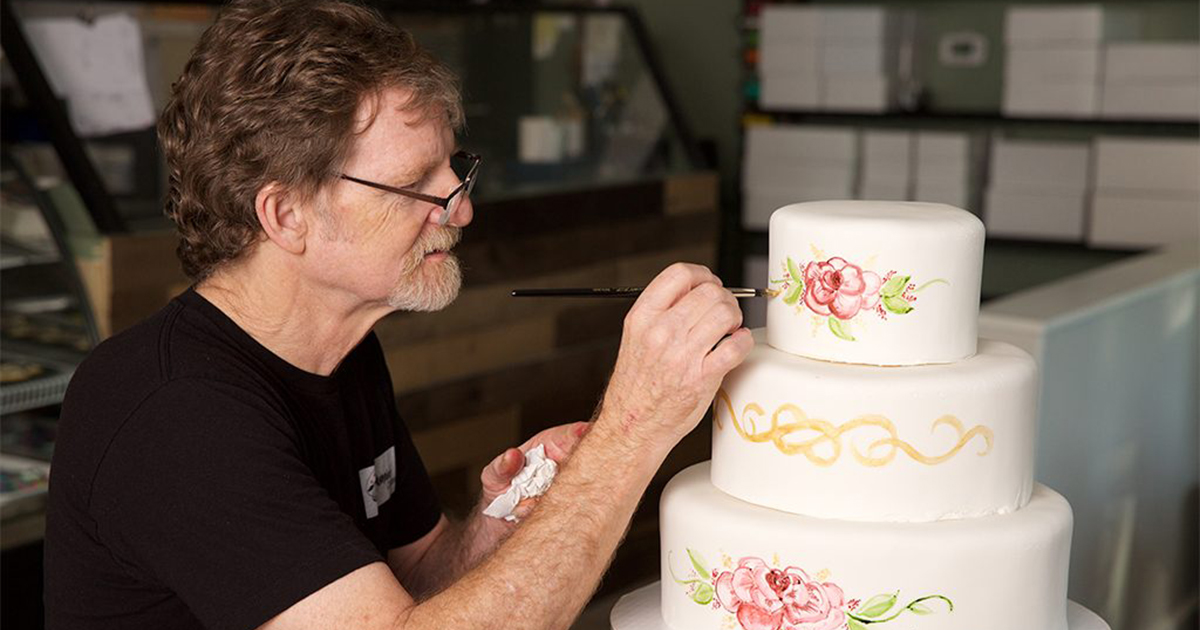
By Cheryl Magness
In a decision announced Monday, June 4, in the case Masterpiece Cakeshop v. Colorado Civil Rights Commission, the U.S. Supreme Court ruled 7-2 in favor of Masterpiece Cakeshop owner/artist Jack Phillips.
In response to the ruling, LCMS President Rev. Dr. Matthew C. Harrison issued the following statement:
“The decision, while a victory for Phillips, is not all that those concerned about First Amendment rights and religious freedom might have hoped. It appears at first glance that Justice Kennedy, the court’s perennial swing vote, did not see the case as a broader First Amendment issue, as his statements in the oral arguments and decision of the Obergefell case might have indicated. We shall continue to work and pray for reasonable laws and court interpretations which find the balance between the protection of religious and ‘free exercise’ rights of Christians over against the civil rights of others.”
In 2012, Phillips, a Christian, declined to design a wedding cake for a same-sex couple, stating that to do so would violate his religious convictions. When the couple filed a complaint, both the Colorado Civil Rights Commission and the Colorado Court of Appeals ruled that Phillips had discriminated against the couple.
The Colorado Supreme Court refused to hear the case, and Phillips appealed to the U.S. Supreme Court. Oral arguments were heard on Dec. 5, 2017. The majority opinion was written by Justice Anthony Kennedy, with Justices Ginsburg and Sotomayor dissenting.
The Lutheran Church—Missouri Synod has been closely following the Masterpiece Cakeshop case from the beginning, and in October 2017 joined a Supreme Court amicus brief in support of Phillips. The case had the potential to set significant legal precedent regarding freedom of speech and free exercise of religion. The decision, however, was made on much narrower grounds, leaving open the possibility that similar cases may be decided differently.
While the decision is a clear victory for Phillips, it is a less-than-resounding one for supporters of religious freedom, as noted on Page 18 of the opinion: “The outcome of cases like this in other circumstances must await further elaboration in the courts, all in the context of recognizing that these disputes must be resolved with tolerance, without undue disrespect to sincere religious beliefs, and without subjecting gay persons to indignities when they seek goods and services in an open market.”
Ultimately, the Court found for Phillips not on religious freedom grounds, but because it determined he had not received a fair hearing by the Colorado Civil Rights Commission: “[T]he delicate question of when the free exercise of his religion must yield to an otherwise valid exercise of state power needed to be determined in an adjudication in which religious hostility on the part of the State itself would not be a factor in the balance the State sought to reach. That requirement, however, was not met here. When the Colorado Civil Rights Commission considered this case, it did not do so with the religious neutrality that the Constitution requires” (Page 3).
In light of today’s ruling, it appears that further clarification of a proper understanding of First Amendment religious free exercise rights over against other civil rights will have to wait until new cases make their way through the courts.
Posted June 4, 2018
